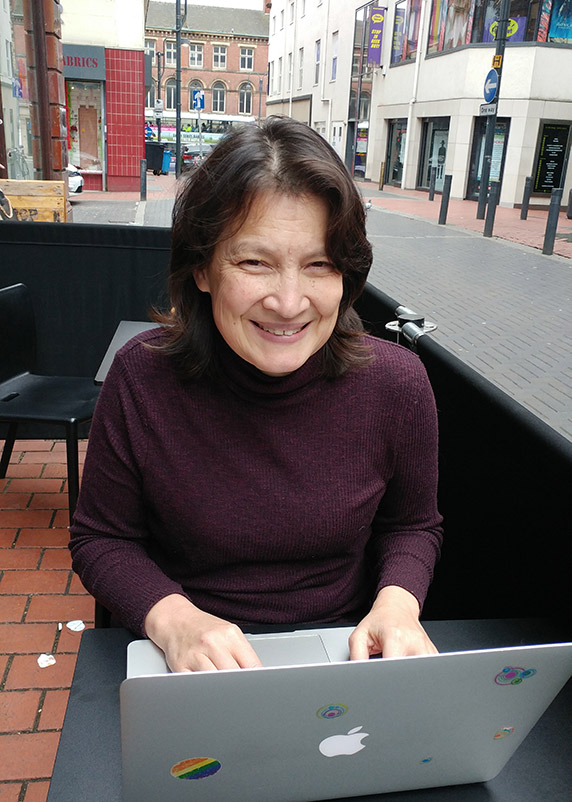Tami Bond has been appointed the Walter Scott, Jr. Presidential Chair in Energy, Environment and Health, the second of four presidential chairs endowed by the transformational gift from college alumnus Walter Scott, Jr.
A respected researcher in energy consumption and global atmospheric chemistry, and a John D. and Catherine T. MacArthur Fellow, Bond will join the Department of Mechanical Engineering at Colorado State University at the rank of professor. She is currently the Nathan M. Newmark Distinguished Professor at the University of Illinois at Urbana-Champaign in Civil and Environmental Engineering, and an affiliate professor in atmospheric sciences.

“Dr. Bond’s expertise enhances and adds new capabilities to ongoing research in the college,” said college dean David McLean, “and with our cross-campus collaborations with the Energy Institute and the Partnership for Air Quality, Climate, and Health.”
Facing the challenges of environmental improvement
Bond’s research describes the challenges of a “decision-to-impact” framework, affecting present and future global atmospheric conditions and health. The framework is a causal chain, originating with small local choices for household energy and technology use. Those choices lead to increased atmospheric emissions, ultimately affecting global environmental concerns and impacts on health.
Humanity grapples with difficult engineering and scientific tasks to improve the environment, and Bond says there are big challenges to overcome. Engineers and scientists need to develop the skills and confidence to work at the scale of global interconnected systems to be effective. She also points to constraints that engineers should consider when it comes to planning and implementing solutions.
“Engineers are great at designing for constraints,” Bond said. “We need to start recognizing people, their aspirations, and their need to be inspired as part of those constraints.
Global health concerns and environmental impact
Many of the constraints facing environmental improvement start with choices made in local communities, particularly in low- and middle-income countries. Bond’s work in the field, researching atmospheric black carbon emissions and their effect on health, ultimately confirms the global impact of local choices.
According to Bond’s research, black carbon, the dark material in soot and smoke, is a significant contributor to climate change. Sheryl Magzamen, associate professor of epidemiology in the Department of Environmental and Radiological Health Sciences, said that Bond’s research explores black carbon and other emissions as a “wicked problem.”
“The energy we need for cooking, heating, travel and commerce — the very elements that have allowed our society to advance,” said Magzamen, “adversely impacts our global environment, in turn impacting the health and wellbeing of all populations.”
Magzamen will collaborate with Bond on health and environment research through CSU’s Partnership for Air Quality, Climate, and Health. She added that Bond’s work shows how improvements in technology are not enough to solve problems. How individuals and families use and adapt to new technology is the key leading to improved health.
“We have whole segments of global society that bear the burden of health and environmental impacts of emissions, since modern technology is often out of their reach,” said Magzamen. “Bond inherently understands this ‘wicked’ problem as a system of many different problems, which only can be solved through collaboration and integration.”
Shaping policy to bring solutions to scale
With her proven ability to collaborate across disciplines, Bond will work closely with Colorado State University’s Energy Institute to develop scalable solutions to the world’s most pressing energy and climate issues. Bond brings big ideas to fruition, driving sustainable change by developing decision-making tools to shape public policy.
“Bond is interested in the levers of change to bring innovative solutions to scale globally,” said Bryan Willson, executive director of the Energy Institute. “From her growing portfolio on the impacts of climate change to her work to influence energy policy, Bond is uniquely suited for this role, and I know she will make a tremendous impact.”
Having an interdisciplinary researcher like Bond on campus will help researchers take on a more holistic approach to solving problems. Her commitment to working across disciplines will help expand environmental research at CSU.
“Dr. Bond thinks big,” said Magzamen. “She is able to bring such firepower to campus that we can start thinking about ways to approach these ‘wicked problems’ together, in contrast to the incremental approach that largely defines academic research.”
Research honors and collaborative outlook
Bond is an ISI Highly Cited Researcher, and her research has led to a number of national and international honors. Along with her MacArthur Foundation Fellowship, she was also named a Fellow of the American Geophysical Union in 2015. The American Association for Aerosol Research awarded her their Outstanding Publication Award in 2017, and in 2018 she was honored by her alma mater, the University of Washington, for Distinguished Achievement in Academia.
In joining CSU, she is looking forward to continuing her research in a collaborative environment. She pointed to CSU’s strong group of interdisciplinary researchers, who make it possible to work on complex projects at a global scale.
“I hope that very few projects are mine alone,” she said. “I’m already working with people on initiatives on the indoor environment in the United States and on rural development abroad.”
Leading the way as a presidential chair
Bond is the second of four presidential chairs for the college, joining James Hurrell in among the most prestigious honors CSU awards to faculty members. Presidential chairs are appointed for their important roles in advancing CSU’s research and educational programs. Bond’s appointment is an exciting opportunity for the university to lead new efforts in understanding science and policy at the energy, environment, and health nexus.
“Dr. Bond’s research has made pivotal contributions towards understanding the complex links between energy and climate,” said Sonia Kreidenweis, associate dean for research for the Walter Scott, Jr. College of Engineering. “She consistently sets a standard in her approach to understanding how human choices affect our shared environment.”